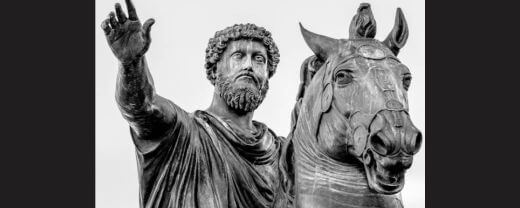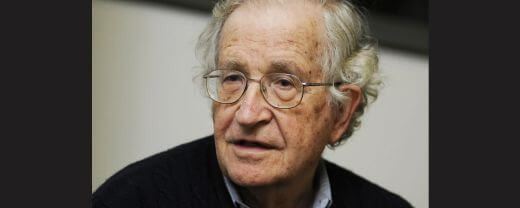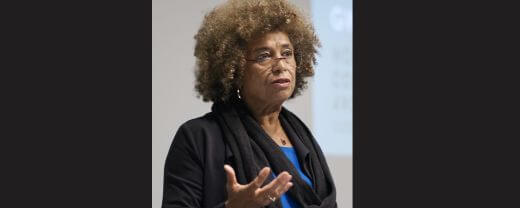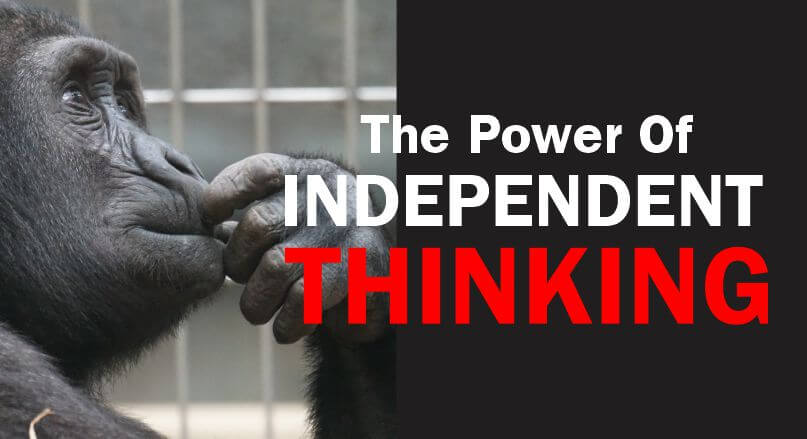Independent thinking is an important skill that is valued in many different fields as it allows you to make informed decisions and solve complex problems.
Independent thinking plays a crucial role in personal growth, decision-making, and problem-solving.
It allows individuals to navigate complex situations, challenge conventional wisdom, and develop unique perspectives.
But how does it compare to other cognitive processes, and what skills are essential to mastering it?
Understanding its nuances can help you refine your approach to learning, creativity, and everyday decision-making.
In this discussion, we’ll explore the distinctions between independent thinking and related concepts, examine its impact across different areas of life, and highlight key skills to develop.
Ready to unlock a sharper, more self-reliant mind? Let’s discuss.
Defining Independent Thinking
Independent thinking means analyzing and evaluating information on your own, forming opinions, and making decisions based on logic and reasoning.
It allows you to think freely without being overly influenced by societal norms, peer pressure, or authority figures.
As contained in Emerson’s The Conduct of Life, thinking independently shows individualism and self-reliance which are needed to thrive in life.
In a world filled with information, independent thought helps you avoid blind conformity and develop original perspectives.
This way of thinking does more than just shape your personal choices, it also contributes to a society that values discussion and innovation.
When you think independently, you assess arguments, question assumptions, and seek evidence before reaching conclusions. This ensures your opinions have a solid foundation and stand up to scrutiny.
According to Ralph Waldo Emerson’s Self-reliance, self-reliance starts with thinking independently and believing in your own judgment.
Independent thinking also requires the ability to challenge established ideas and remain curious.
It pushes you to seek knowledge beyond what is presented and to explore different angles before forming a stance. As a result, you become more capable of recognizing bias and misinformation.
At its core, independent thinking is not just about holding personal beliefs but about actively engaging in the process of evaluating and refining them.
This mindset empowers you to make sound choices while fostering a culture of diverse and meaningful discussions.
Related: What is Human Agency?
Independent Thinking vs. Critical Thinking
Independent and critical thinking are closely related but distinct. Critical thinking is a structured process used to evaluate facts, verify credibility, and apply logic to reach conclusions.
It involves breaking down information methodically and assessing its validity.
Independent thinking, on the other hand, prioritizes personal judgment. While critical thinking provides tools for evaluating information, independent thinking involves using those tools to develop personal viewpoints.
Instead of simply following conclusions laid out by others, you actively engage with information, applying your experiences and insights to interpret it.
Both skills are essential. A strong independent thinker integrates critical analysis while maintaining personal autonomy in decision-making.
This combination helps you approach complex issues with a balanced mindset and resist undue influence.
Related: Developing Personal Agency
The Role of Independent Thinking in Personal Development
Independent thinking shapes your personal growth by strengthening your ability to make informed choices.
It encourages self-awareness, allowing you to recognize your values and make decisions aligned with them.
Confidence grows when you trust your reasoning. When you develop independent thought, you become more assured in your judgments and less reliant on external validation.
This confidence extends to various areas of life, from personal relationships to professional endeavors.
Problem-solving also improves when you think independently. You become better at analyzing situations from different angles, leading to well-thought-out solutions.
Whether you’re handling workplace challenges or personal dilemmas, independent thought enables you to navigate situations with clarity.
By cultivating this mindset, you build resilience and adaptability. You learn to trust your reasoning while remaining open to new information, refining your perspectives as needed.
Further Reading: The Dark Side of Sense of Agency
Examples of Independent Thinking in Action
Independent thinking appears in many aspects of life. In education, it emerges when students engage in project-based learning, researching topics, and forming their own conclusions.
For example, a student tasked with designing a sustainable energy project must assess different energy sources and decide on the best approach based on logic and evidence.
At work, independent thinking drives innovation. Imagine a marketing team struggling with declining engagement.
A team member who thinks independently might suggest an unconventional strategy based on customer data rather than sticking to outdated methods.
Their ability to analyze the situation independently leads to fresh solutions.
In daily life, independent thinking influences decision-making. Someone with dietary restrictions may choose to research and create their own meals instead of relying on pre-packaged options.
By questioning standard food choices, they take control of their health and make informed decisions.
These examples highlight how independent thinking improves problem-solving, creativity, and decision-making in different settings.
Related: Sense of Agency: What is it?
Skills Associated with Independent Thinking
Developing independent thinking requires certain skills:
- Creativity – Helps you generate new ideas and consider different viewpoints. Independent thinkers are open to exploring unconventional solutions.
- Problem-Solving – Enables you to identify challenges, analyze them critically, and develop strategies to address them.
- Adaptability – Allows you to adjust your thinking based on new information. Being flexible helps you refine your opinions without losing your autonomy.
- Effective Communication – Strong independent thinkers can clearly express their ideas and engage in productive discussions.
By strengthening these skills, you enhance your ability to think independently and make well-reasoned decisions.
Barriers to Independent Thinking
Certain obstacles can hinder independent thought:
- Social Pressure – The desire to conform can make it difficult to challenge prevailing opinions. Many people fear standing out or being judged, leading them to suppress their independent thoughts.
- Information Overload – With so much content available, sorting through it can be overwhelming. This can cause people to rely on the most popular opinions rather than analyzing information themselves.
- Over-Reliance on Authority – While experts provide valuable insights, depending too much on their opinions can prevent you from forming your own perspectives.
Recognizing these barriers is the first step toward overcoming them. Questioning norms, seeking diverse perspectives, and practicing critical analysis help maintain independent thought.
Cultivating Independent Thinking
To develop independent thinking, consider these strategies:
- Ask Questions – Challenge assumptions and dig deeper into topics. Instead of accepting information at face value, ask why things are the way they are.
- Expose Yourself to Different Perspectives – Engaging with different cultures, disciplines, and viewpoints broadens your understanding and helps you think beyond familiar ideas.
- Think Through Decisions – Before making choices, consider the reasoning behind them. Weigh the pros and cons based on your own analysis rather than external influence.
- Practice Self-Reflection – Regularly evaluate your thoughts and beliefs to ensure they are truly your own and not shaped solely by external pressures.
- Engage in Thought-Provoking Discussions – Conversations with people who challenge your views encourage deeper thinking and refine your reasoning skills.
By applying these practices, you strengthen your ability to think independently and make informed decisions based on your own judgment.
Types of Independent Thinking
Here are the various types:
- Critical Thinking: Analyzing information to uncover biases and assumptions, enabling sound judgments and strong evaluations of arguments’ validity.
- Creative Thinking: Generating innovative ideas or perspectives, providing unique solutions by thinking outside conventional boundaries.
- Reflective Thinking: Evaluating personal thoughts and behaviors through self-awareness to enhance decision-making and personal growth.
- Strategic Thinking: Making decisions aligned with long-term goals by anticipating outcomes and considering multiple possibilities.
- Metacognitive Thinking: Reflecting on learning processes and strategies, encouraging self-improvement in learning and problem-solving.
Examples of Independent Thinkers in History
There have been in history, numerous thinkers who were independent in their thoughts and achievements. I have carefully selected these ancient and modern thinkers as examples of what we have been explaining:
Ancient Independent Thinkers

- Socrates: Socrates exemplified independent thinking by rejecting conventional wisdom, questioning beliefs, and promoting self-examination. He emphasized that knowledge arises from inquiry, famously stating, “The unexamined life is not worth living.”

- Pythagoras: Pythagoras was an autonomous thinker who challenged prevailing ideas, pioneering unique philosophical and mathematical theories, including the groundbreaking Pythagorean theorem, reflecting his independence in philosophy, morality, and spirituality.

- Cicero: Cicero, an autonomous thinker, combined Stoicism, Epicureanism, and skepticism into his philosophy, emphasizing ethics, individualism, and critical thinking while challenging established ideas to pursue truth through logical analysis.

- Marcus Aurelius: Marcus Aurelius was an independent thinker who developed Stoic philosophy based on personal experiences, emphasizing self-reflection, accepting life’s impermanence, and maintaining virtue, rather than conforming to mainstream ideas of his time.
Modern Independent Thinkers

- Noam Chomsky: Noam Chomsky is an independent thinker known for his groundbreaking theories on language acquisition, syntax, and generative grammar, which challenged prevailing behaviorist and empiricist paradigms, revolutionizing linguistics and offering critical insights into politics and social issues. Photo Credit: Britannica.

- Jordan Peterson: Jordan Peterson is an independent thinker known for challenging mainstream views on gender, politics, religion, and education. His ideas are based on extensive research and personal experiences, emphasizing free speech and critiquing radical ideologies.

- Yuval Noah Harari: Yuval Noah Harari was an autonomous thinker who challenged conventional views of history and humanity. By blending anthropology, biology, and economics, he explored unconventional ideas in books like Sapiens and Homo Deus. Harari’s curiosity-driven approach led him to offer unique perspectives on human history and the future. Photo Credit: Wikipedia.

- Angela Davis: Angela Davis was an autonomous mind because she always prioritized her own values, ideas, and convictions over outside pressure or influence. She was committed to speaking her own truth, even if it meant challenging deeply entrenched systems of power and privilege. Davis was committed to pursuing her own intellectual interests, despite facing a great deal of criticism and backlash from mainstream academia. Photo Credit: Wikipedia.
Final Thoughts
Independent thinking empowers you to analyze information critically, form your own opinions, and make decisions based on reason. It sets you apart from those who simply follow trends or accept opinions without question.
By strengthening problem-solving, creativity, adaptability, and communication, you enhance your ability to think for yourself.
Recognizing and overcoming barriers such as social pressure, information overload, and reliance on authority helps maintain independent thought.
Cultivating this mindset leads to greater confidence, better decision-making, and a more fulfilling life.
Thinking independently allows you to engage with the world in a meaningful way, ensuring that your choices align with your values and reasoning rather than external pressures.
REFERENCES
- Autonomous Thinking: 7 Tips On Becoming An Individual Thinker
- Truly Independent Thinkers Have These 5 Traits
- 5 Ways to Build the Independent Thinking Skill
Pyo Merez (PsyD) is a distinguished adolescent and adult psychologist at the forefront of mental health advocacy.
With expertise in cognitive and developmental psychology, focusing on social relationships, cultural contexts, and individual differences, Pyo has dedicated his career to empowering adolescents and adults.
As a sought-after speaker and panelist, Pyo shares invaluable insights on issues affecting young people, contributing to a deeper understanding of mental health and well-being in today's society.

